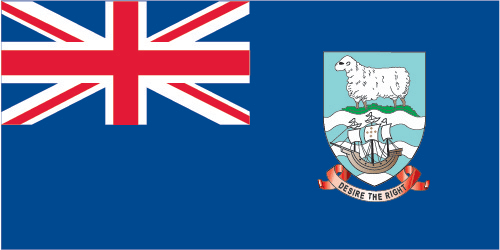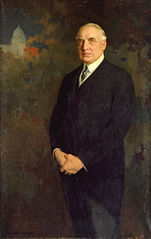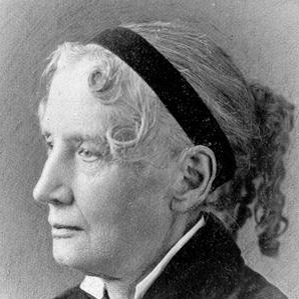 Flag Day has been celebrated as a holiday since 1916. John Adams, in 1777, proposed the idea of a flag to the Continental Congress. He went on to describe its colors, stars, and stripes. Children could learn more at: Flag Day.
Flag Day has been celebrated as a holiday since 1916. John Adams, in 1777, proposed the idea of a flag to the Continental Congress. He went on to describe its colors, stars, and stripes. Children could learn more at: Flag Day.
National Skunk Day is today! Ten species of skunks exist, and they all have stripes. In addition to the usual black and white skunks, other skunks are beige, brown, and gray. They are omnivorous, eating eggs, larvae, worms, berries, leaves, and many living life. They can sometimes find cat food in garages. They use their long front claws to grub for insects and other food. Idea: Children could find out if skunks have any predators.

Flag of Falkland Islands
Falkland Islands celebrate Liberation Day, marking the day in 1982 when the British defeated Argentina in the Falkland Islands War. Composed of two main islands and over 700 smaller islands east of Argentina, the Falkland Islands are an Overseas Territory of the United Kingdom. Slightly over 3,000 people live in the Falklands, a region about the size of Connecticut. Stanley is the capital, and fishing is a major industry. Children can learn more at: Falkland Islands
United States Army Insignia
United States Army was created in 1775 by the second Continental Congress. The next day George Washington became commander of the new army.
Sandpaper was patented by Isaac Fischer of Springfield, Vermont, in 1834. Today sandpaper is not made of either sand or paper. Sandpaper is graded by grit size. Course sandpaper has a low number. For example, extra course sandpaper has a number of P12. Ultrafine sandpaper has a number of P6000.
Hard hat diving suit was patented by Leonard Norcross of Dixfield, Maine, in 1834. The suit became the first practical diving suit. A tube connected the helmet/suit with surface air. Norcross was so proud of his invention he named his son Submarinus. Children can watch a video of hard hat diving at: https://www.youtube.com/watch?v=CsCXlbURBU4.
Alcock and Brown
John Alcock and Arthur Whitten Brown in 1919 became the first people to fly across the Atlantic Ocean nonstop. These two British pilots flew a modified World War I bomber from Newfoundland to Ireland. They earned the Daily Mail prize of £10,000 and a hero’s welcome. Older children can read more, including Alcock’s remembrances, at: Alcock and Brown.

Warren G. Harding
Warren G. Harding became the first president to communicate over the radio in 1922. He discussed the dedication of the Francis Scott Key Memorial in Baltimore, Maryland.
John Bartlett (born Plymouth, Massachusetts, 1820; died Cambridge, Massachusetts, December 3, 1905) was an editor and a publisher. He owned a bookstore. During his free time he produced Familiar Quotations: Being an Attempt to Trace to Their Sources Passages and Phrases in Common Use. It first appeared in 1855; and it has had numerous revisions since then. Children can visit an interesting website at: http://www.bartleby.com/quotations/.
Margaret Bourke-White (born New York, New York, 1906; died Stamford, Connecticut, August 27, 1971) was a famous photojournalist. She photographed a number of World War II battles. When the Nazi concentration camps were opened, she photographed the horrors. She also photographed Gandhi. One of her most famous books was You Have Seen Their Faces, photographs of southern poverty. Children could view some of her works and learn more about her at: Margaret Bourke-White
Bruce Degen (born Brooklyn, New York, 1945) has written and/or illustrated at least 40 children’s books. He illustrated among other works the Magic School Bus series. His written works include Daddy Is a Doodlebug and Sailaway Home.
James Gurney (born Glendale, California, 1958) writes and illustrates books for children. He is known for his Dinotopia series. Children can visit his website: James Gurney.
Lensey Namioka (born Beijing, China, 1929) has written at least 23 books for children and young adults. Her books include Yang the Youngest and His Terrible Ear and Half and Half.
Harriet Beecher Stowe (born Litchfield, Connecticut, 1811; died Hartford,  Connecticut, July 1, 1896) was an author. She is best known for Uncle Tom’s Cabin. The book greatly aided the abolitionist movement and may have been one of the main causes of the Civil War. Children can visit a website about her at: Harriet Beecher Stowe. They can also read many of her works, including Uncle Tom’s Cabin, at: Project Gutenberg.
Connecticut, July 1, 1896) was an author. She is best known for Uncle Tom’s Cabin. The book greatly aided the abolitionist movement and may have been one of the main causes of the Civil War. Children can visit a website about her at: Harriet Beecher Stowe. They can also read many of her works, including Uncle Tom’s Cabin, at: Project Gutenberg.
Janice May Udry (born Jacksonville, Illinois, 1928) writes books for children. Her books include A Tree is Nice and Let’s Be Enemies.
Laurence Yep (born San Francisco, 1948) has written at least 46 books for children. He received the 1978 Jane Adams Book Award for Child of the Owl. He earned a 1976 Newbery Honor Award for Dragonwings and another Newbery Honor Award in 1994 for Dragon’s Gate. The 2005 Laura Ingalls Wilder Medal was presented to him for his body of work.